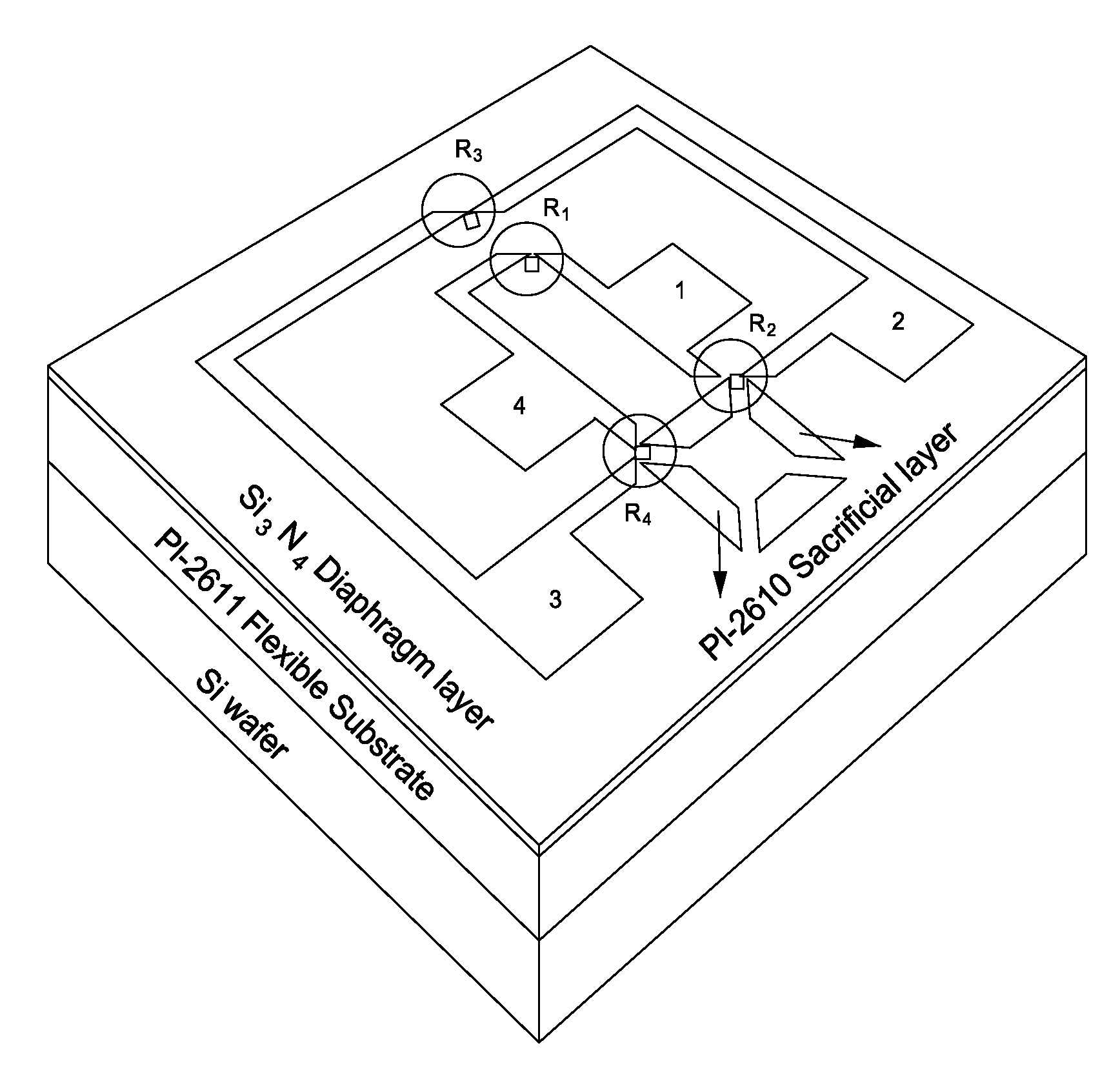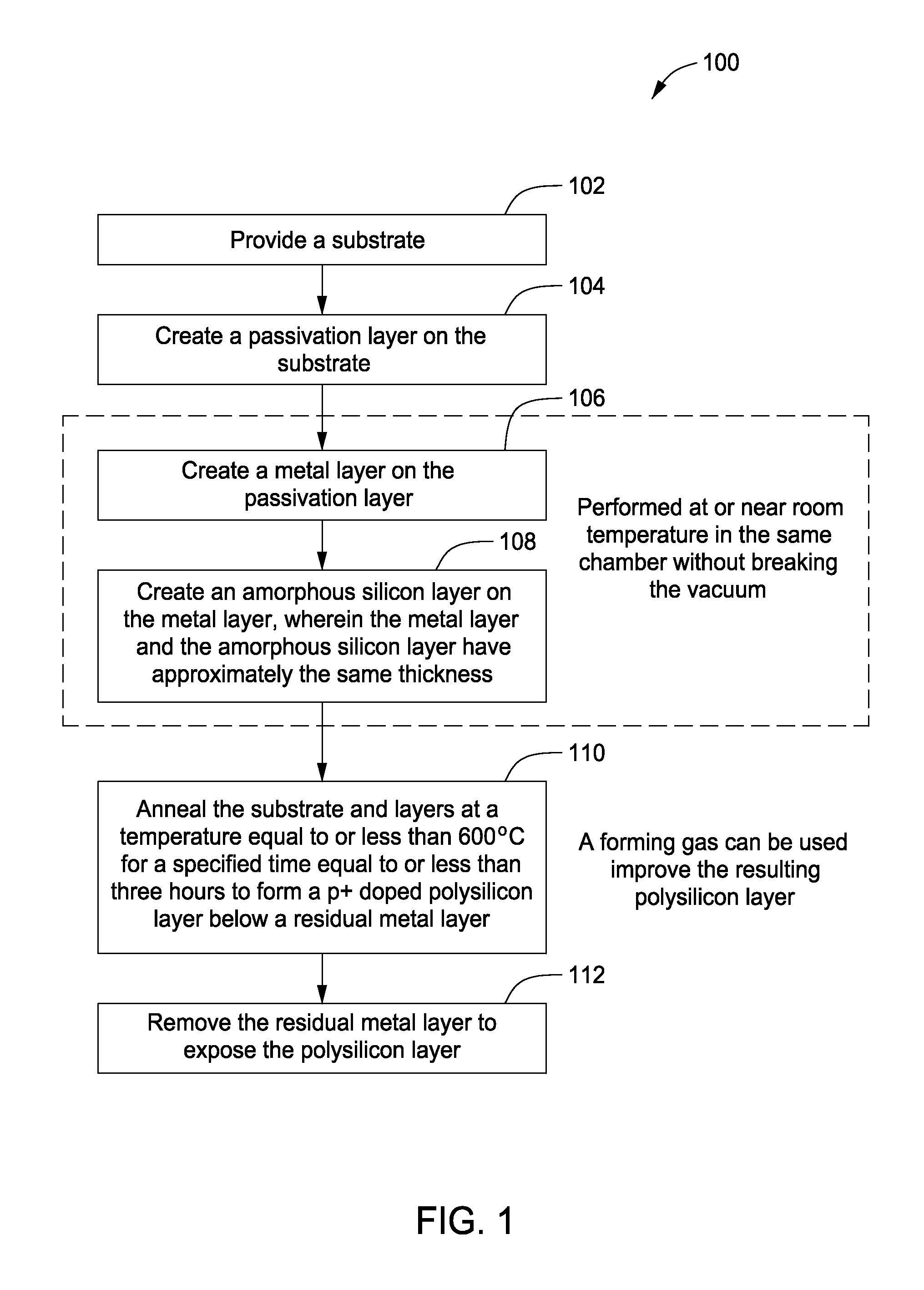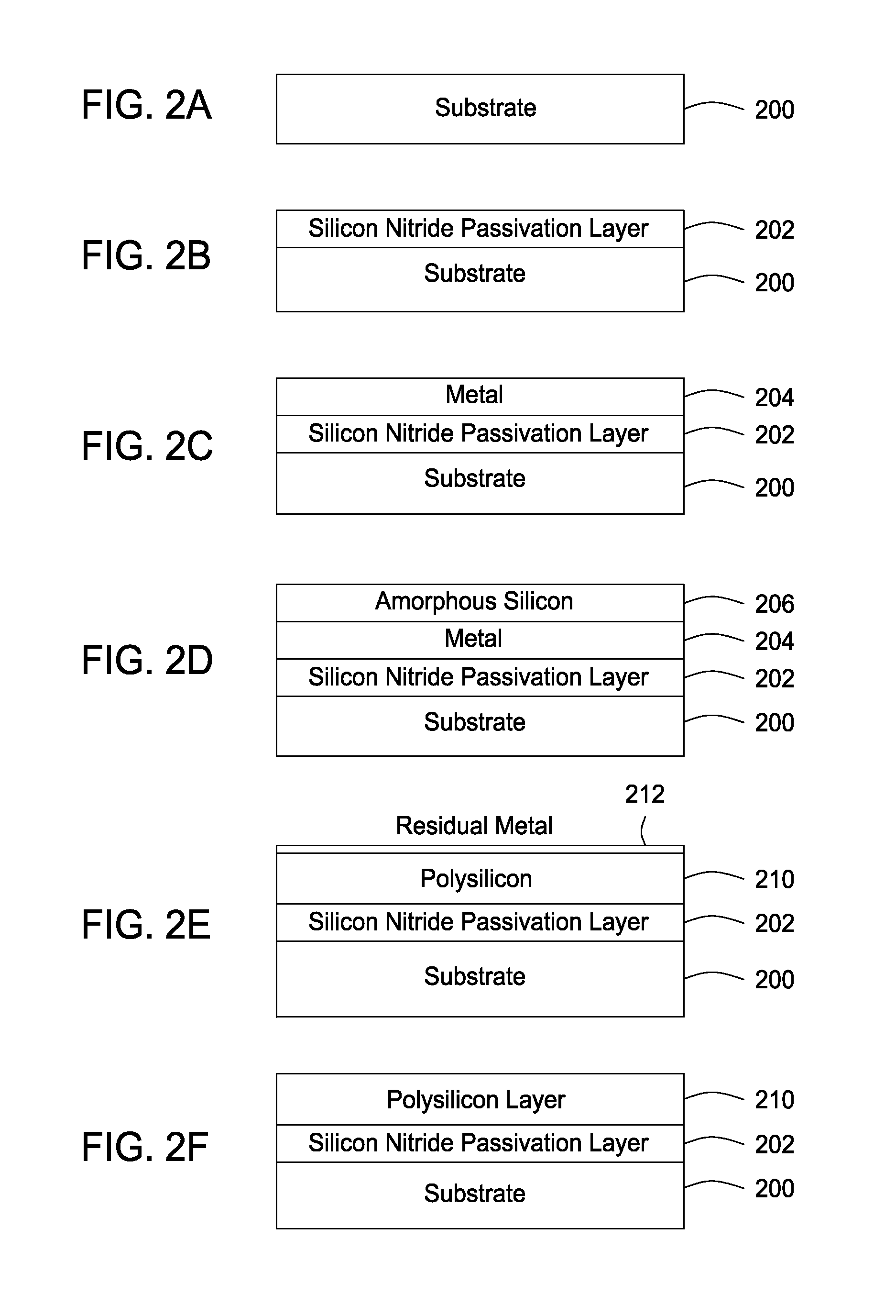Method and apparatus for fabricating piezoresistive polysilicon by low-temperature metal induced crystallization
a piezoresistive polysilicon and low-temperature metal technology, applied in the field of semiconductor processing and devices, can solve the problems of low thermal budget of flexible substrates, dictating low-temperature processing, temperature too high to be used with flexible polyimide substrates, film contamination and uniformity, etc., and achieve excellent piezoresistive characteristics
- Summary
- Abstract
- Description
- Claims
- Application Information
AI Technical Summary
Benefits of technology
Problems solved by technology
Method used
Image
Examples
Embodiment Construction
[0059]While the making and using of various embodiments of the present invention are discussed in detail below, it should be appreciated that the present invention provides many applicable inventive concepts that can be embodied in a wide variety of specific contexts. The specific embodiments discussed herein are merely illustrative of specific ways to make and use the invention and do not delimit the scope of the invention. The discussion herein relates primarily to low-temperature aluminum induced crystallization and polysilicon piezoresistive pressure sensors, but it will be understood that the concepts of the present invention are applicable to any low-temperature metal induced crystallization and any semiconductor device that can benefit from the use of a piezoresistive polysilicon film.
[0060]To facilitate the understanding of this invention, a number of terms are defined below. Terms defined herein have meanings as commonly understood by a person of ordinary skill in the areas...
PUM
 Login to View More
Login to View More Abstract
Description
Claims
Application Information
 Login to View More
Login to View More - R&D
- Intellectual Property
- Life Sciences
- Materials
- Tech Scout
- Unparalleled Data Quality
- Higher Quality Content
- 60% Fewer Hallucinations
Browse by: Latest US Patents, China's latest patents, Technical Efficacy Thesaurus, Application Domain, Technology Topic, Popular Technical Reports.
© 2025 PatSnap. All rights reserved.Legal|Privacy policy|Modern Slavery Act Transparency Statement|Sitemap|About US| Contact US: help@patsnap.com



